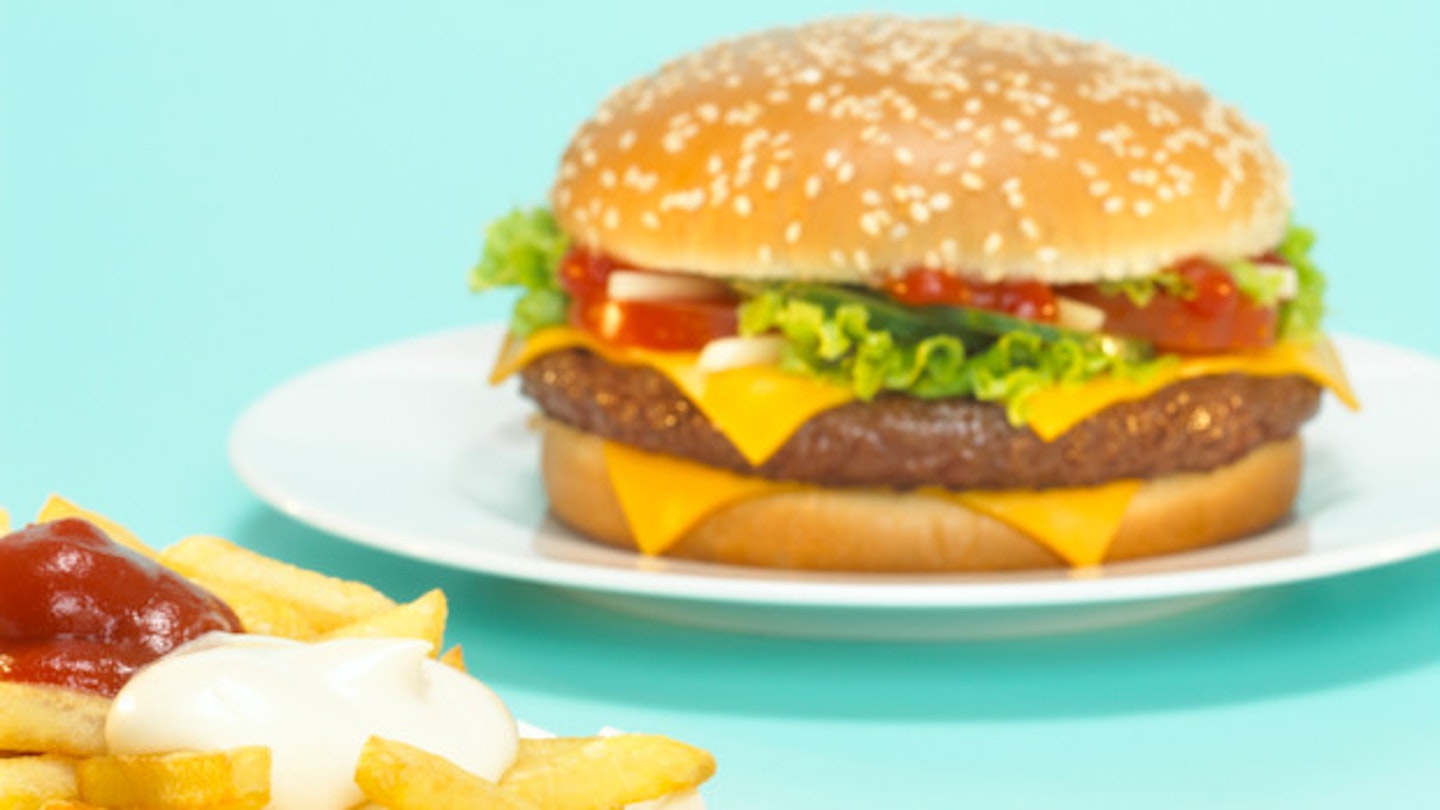Fast food is anchored firmly in our fast-paced world, providing us with the ideal requirements for modern living – it’s quick, easy and cheap. Most of us know it isn’t the most nutritious choice, but despite fast food chains offering healthier options (which is commendable), their menus still contain large amounts of fat, salt, sugar and calories.
It’s this specific combination of nutrients that makes the food incredibly moreish, and big portions don’t make it exactly easy to stay trim. Though the occasional fast food meal isn’t going to hurt you, the cumulative effects of three to four every week will increase your health risks later in life. So put your ‘middle age is so far away’ mentality aside, and remember fast food is best just kept as a treat. Read below to see why.
Pizza
The biggest factor determining a pizza’s health rating is how it was made, and how many slices you had. The problem with restaurant pizzas is their huge amounts of cheese which makes them shockingly high in calories and fat. These are supposed to be shared, but eat one (as let’s face it, we can) and at 2,160 kcal for a large pan Margherita, you immediately exceed the daily calorie allowance of an average adult.
If you choose your pizza carefully then there can be a lot of nutritional value. By staying away from supersized stuffed crusts, sticking with a thin base, wholewheat, half the cheese, and lots of vegetables instead of processed meats, then there is plenty which is healthy. Pizza Hut and Pizza Express also offer a range of pizzas under 500 kcal. We love the Shrimply Delicious (king prawns, fresh spinach, mozzarella cheese and mixed peppers) which provides 468 kcal and 14.9g fat.
Health score: ranging from 2 to 7/10 (depending on whether you’re a sinner or a saint)
Chicken nuggets
Nobody (I hope) orders fast food expecting a healthy meal, but most would expect what they order is, well, what they ordered. Chicken nuggets are made from chicken, which makes them high in protein, but concealed inside these nugget’s deep-fried breading is an artificial mixture of chicken parts which can be high in calories, salt, sugar, and fat (not the plain white chicken meat you were hoping for). That’s 375 kcal for 9 chicken nuggets, which may not seem so bad, but the fat and calories will all add up when you have some fries on the side. The occasional nugget won’t do significant damage to your health, but these should not be a staple of your diet.
Health score: 4/10
Cheesy chips
Portions of chips can differ by hundreds of kcals, especially if you’re topping them with cheese, mayonnaise or any similar high-fat accessory. A small 130g portion of chips contains about 310 kcal. Add on about 100g of melted Cheddar cheese (one of the highest fat cheeses) and you’ll get another 35g of fat and 400 kcal, dramatically increasing the energy content of your meal to 710 kcal! Both these foods are also high in salt, which can raise blood pressure and put you at an increased risk of heart disease and stroke.
You can make your own slightly healthier cheesy chips at home by baking oven chips, and melting over a naturally lower fat cheese such as camembert, which has a third less fat and one quarter fewer calories than Cheddar.
Health Score: 2.5/10
Doner Kebab
There doesn’t seem to be too much wrong with meat, pitta and salad, but kebabs tend to come smothered in dressings and oil which bring in a lot of fat, calories and salt. They’re not particularly appetising either when you realise the rotating chunk of meat is a combination of cuts from various animals which have been heavily spiced and re-formed into a greasy cylinder shape.
An average sized doner can provide over 1,000 kcal and 50g of fat. An even larger greasy specimen could set you back over 2,000 kcal – an average women’s daily allowance. Since these kebabs are classically consumed on top of a day’s food as well as alcohol, it’s additional food we just don’t need (though it’s hard to make healthy decisions after an evening of cocktails).
Health Score: 1/10
Big Mac meal
Most people don’t have just a burger, fries or nuggets separately. Nope. They get a meal, of course. A Big Mac meal with medium fries and Coke will set you back 990 kcal and 40g fat. That’s about 50% of an average person’s daily calorie allowance in just one meal. There’s also a whopping 51g of sugar in this meal which is largely due to the addition of regular Coke.
By being mindful with your portion sizes and choosing diet drinks over regular options you can almost half the calories and fat and dramatically slash the sugar hit. A MacDonald’s cheeseburger with small fries and a medium diet Coke will only set you back 380 kcal, 23g fat and 7g sugar. If you’re a regular fast food meal dealer, refraining from supersizing will benefit you in the long run. You can also find out how your favourite meal deal fares by tapping into Macdonald’s nutrition calculator. Gain knowledge, take control and make healthier combinations.
Health score: 3.5/10 (If you keep portions small and stay away from sugary soda)
Here's an actually (almost) healthy burger to make instead.
Follow Rosie on Twitter @GlutenFreeRosie
This article originally appeared on The Debrief.
